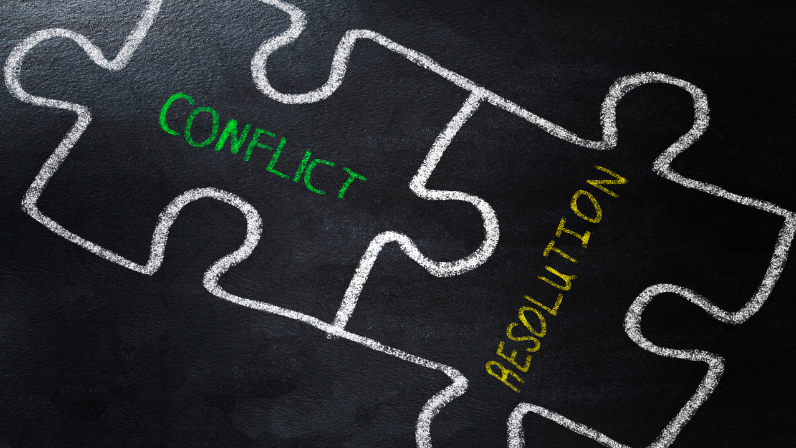Healing, forgiveness and reconciliation: Insights from the Youth Squad podcast
In the episode, of Youth Squad podcast - Youth dealing with the past: What is there to be done?- we discussed with youth activist Ivana about the themes of healing, forgiveness, reconciliation and human rights. Our conversation centers on the complexities of addressing the past, particularly in the context of the wars in the Balkans during the 1990s. In this blog post, we'll cover the main ideas and practical tips from the episode, giving you a clear and easy-to-follow guide to help promote a more just and fair society. Whether you're a listener or a reader, you'll find useful advice to make a positive impact in your community.
Marija opens the episode by emphasizing the importance of reconciliation as a process that acknowledges historical complexities and the need for healing. Ivana as a youth worker dedicated to advocating for reconciliation, shares her perspective on the struggles in this work. She highlights the importance of understanding the reasons behind their efforts, noting that while their region's struggles may seem unique, many communities worldwide face similar challenges.
Tips for moving forward:
- Take the time to learn about the historical conflicts in your region and beyond and try to understand the root causes and consequences of these conflicts
- Create spaces for open and honest conversations about the past and encourage individuals from different backgrounds to share their experiences and perspectives.
Awareness among youth
On the question, how much young people in the Balkans know about the wars of the 1990, Ivana explained that there's a lot of diversity among the youth, meaning their knowledge about the past differs widely. She pointed out that many young people learn about these events from a narrow perspective, often focusing only on their own community's suffering and overlooking the experiences of others.
Ways to make a difference:
- Try to have educational programs, formal or non-formal, that give a fair and inclusive view of historical events, making sure all communities' experiences are included
- Encourage young people to explore knowledge beyond what's taught in school
- Share resources like books, documentaries and online courses that present different perspectives on historical conflicts.
Some young people are eager to learn more, but many remain unaware because their formal education and media focus on limited perspectives. It's important to avoid assuming that all young people have the same level of awareness, as it varies widely based on individual interests and experiences.

The importance of acknowledging the past
Ivana emphasized that acknowledging the past is crucial for healing and preventing future tragedies and she believes that understanding the impacts of historical conflicts is key to creating a more inclusive society. But is understanding historical conflicts really the key to building a more inclusive society? Marija adds that awareness of history can help us recognize patterns that might lead to conflict.
Could this awareness truly enable us to take proactive measures to prevent similar situations from arising? How much does our understanding of the past influence our actions today?
What we can do to understand:
- Look into past conflicts to spot patterns and warning signs that could signal future issues and try to use what you learn to support actions that can help prevent these problems
- Aim to build a society where everyone's experiences and perspectives are valued and respected, no matter what community they come from
The role of organizations in reconciliation
Ivana explains that the Youth Initiative for Human Rights, an organization she is involved with, was established to address the aftermath of the wars and promote a victim-centered approach to transitional justice. This approach allowes them to focuses on the needs of those who suffered during the conflicts and aims to educate young people about the importance of understanding history. The organization helps young people from different communities affected by the wars to meet, talk, and learn from each other. Ivana shares a touching story about a group of young people from Serbia who visited Tuzla to honor the victims of a massacre. This experience showed them the power of empathy and understanding in healing old wounds.
How can these experiences shape the perspectives of young people today? Can learning about and engaging in these efforts help youth build a more empathetic and unified future?
What your organisation can do:
- Build trust and understanding among young people from different backgrounds by organizing exchange programs where they can meet and talk
- Encourage your community to remember and honor important events together, fostering empathy and solidarity among different groups
This episode of "Youth Squad" serves as a powerful reminder of the importance of empathy, understanding and open dialogue in addressing the complexities of the past. By engaging with history, fostering mutual understanding and promoting human rights, young people can contribute to a more inclusive and peaceful society.
To listen to the full conversation with Marija and Ivana about the crucial role young people play in shaping the future of the Balkans and beyond, click on the following links YouTube , Spotify and Deezer


